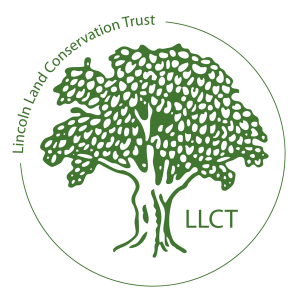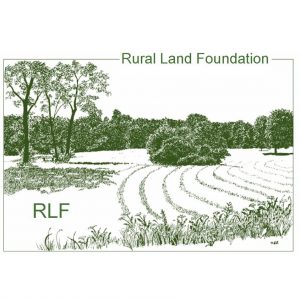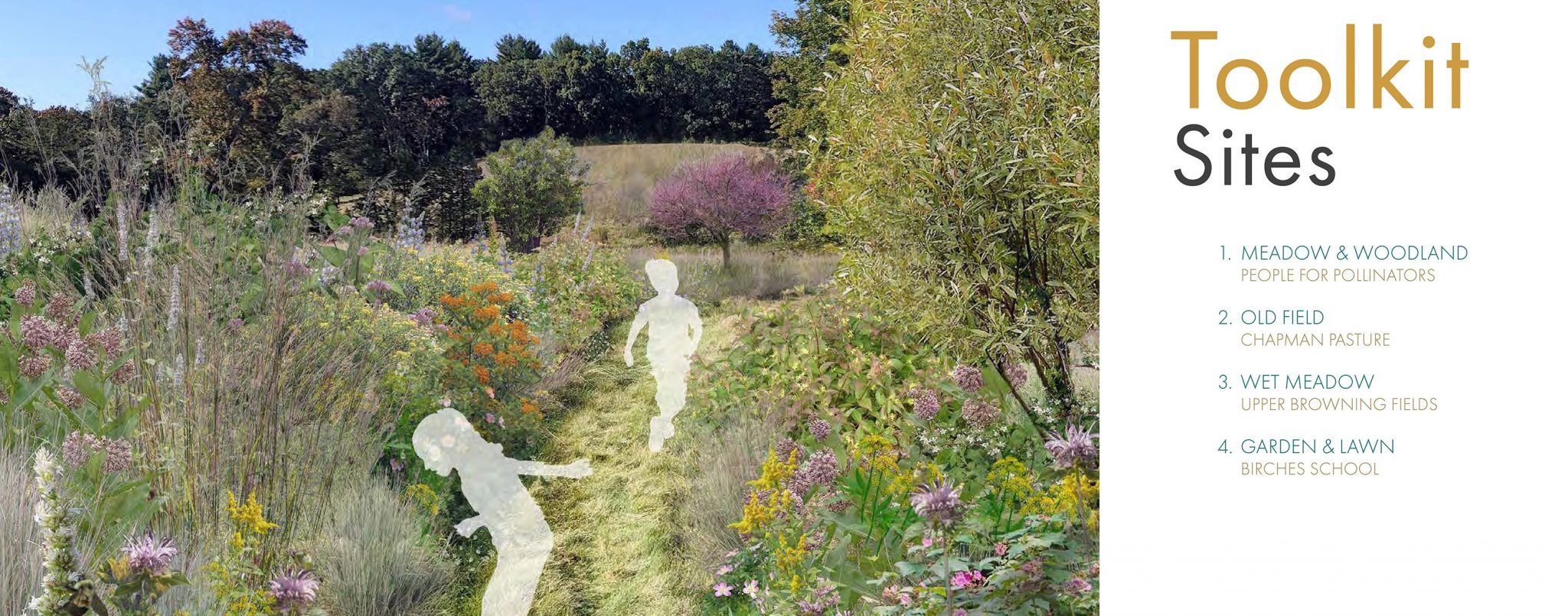As part of the Lincoln Pollinator Action Plan several “toolkits” were developed to guide planting efforts on both conservation land and for community groups and private landowners who are participating in the pollinator pathway. Each toolkit provides planting tips including:
- plant lists organized by habitat type that offer early, mid, and late summer nectar and pollen resources
- site prep and maintenance best management practices
- deer exclusion/plant protection strategies
- invasive plant management strategies
What makes these toolkits different from other planting kits or seed mixes?
Most pollinator kits have focused on overall abundance –“seeing lots of bees” — rather than the wide range of wild pollinators seen in a biodiverse and resilient ecosystem. The same problem arises from habitats planted with generic pollinator seed packets. While we see “lots of flowers,” those flowers are often providing resources for only a few common species of pollinators, and they don’t satisfy the full nectar, pollen, and nesting requirements of a functionally diverse habitat.
The Toolkits designed by Evan Abramson of LandscapeInteractions are based on scientific study by Dr. Robert Gegear, professor of biology at UMASS Dartmouth, of the plants and pollinating animals native to Massachusetts and New England. The Toolkits represent a variety of landscape typologies and ecological habitats that are found in our geographic area and specifically in Lincoln. They are designed to increase biodiversity and climate resiliency.
Commercial planting kits and seed packets often include cultivars, as well as plant species that are non-native to New England. Different bees pollinate different plants based on behaviors and traits that have co-evolved over millions of years. A species-rich ecosystem contains a multitude of specialized relationships between certain species of plants and pollinators. It is essential that we provide the right native plants for our specific species of bees (e,g, bumblebees, mining bees, sweat bees, etc.), butterflies and moths, and other pollinating animals. As one declines, so does the other; and as one is encouraged, the other is revitalized.
Additionally, it is critically important to source seeds, plugs, and plants that are free of neonicotinoids. Most plants and seed purchased from nurseries contain these chemicals. “Neonics,” as they are commonly referred to, are a family of insecticides used in agriculture and gardening products that includes acetamiprid, clothianidin, imidacloprid, nitenpyram, nithiazine, thiacloprid and thiamethoxam. Neonics act on certain kinds of receptors in the nerve synapse and are more toxic to invertebrates, like insects.
Toolkits
Toolkits can be found within the Lincoln Pollinator Action Plan. Below are excerpted PDFs for each toolkit.
All Toolkits
This excerpt from the Lincoln Pollinator Action Plan includes the toolkits for the three scientifically researched case study sites, as well as the Birches School Garden and Lawn Toolkit. The individual toolkits are excerpted below.
Garden + Lawn Toolkit
This Toolkit shows a comprehensive site design for the Birches School in Lincoln, MA. The site was previously a private residence. Divided into several areas, the design provides models for garden landscapes and lawn improvements that are readily adaptable. Habitat conditions, best practices, and instructions for how to convert your lawn into habitat are included. The Birches School planted their site in 2020.
Meadow and Woodland Toolkit
This Toolkit shows a comprehensive conceptual site design for the LLCT Pollinator Meadow in Lincoln, MA (also known as the People for Pollinators Meadow). The site has been dedicated to pollinator habitat since 2016 and already demonstrates good functional diversity. Additional plantings and changes to management strategies will further increase this site’s functional diversity and value to at-risk bumblebees and Lepidoptera.
Old Field Toolkit
This Toolkit demonstrates a pollinator-friendly approach to habitat restoration in a former pasture. Chapman Pasture was grazed by sheep for over forty years. However, the majority of the site consists of non-native grasses. After conducting two prescribed burns, LLCT now “mosaic mows” the pasture and has added shrubs to the wet swales and rock outcrops and has planted and sowed several areas of the field. The toolkit provides a model for potential replication on other fields in Lincoln and beyond.
Wet Meadow Toolkit
The Wet Meadow Toolkit offers a model for Upper Browning Fields. This property is owned and managed by the Lincoln Conservation Department, and a 2020 survey by Dr. Robert Gegear determined that this site is already highly diverse in terms of native plant species and wildlife. The toolkit proposes several additional plantings and some minor changes to mowing regimes to further increase the wet meadow’s functional diversity.
Past Plant Sale Offerings + Planting Tips
Since 2020, LLCT has offered a spring Pollinator Plant Sale. See below for materials, which include past planting lists and planting tips. Past nurseries that LLCT has sourced plants from include: Bagley Pond Perennials, Bigelow Nurseries, New England Wetland Plants, and Native Plant Trust.
2024
2023
2022
2021
2020
Planting Tips and Instructions, adapted from materials prepared by Jane Gruba-Chevalier and excerpted from the Pollinator Action Plan. Rain Barrel Tips prepared by Ruth Ann Hendrickson for the Lincoln Water Department


